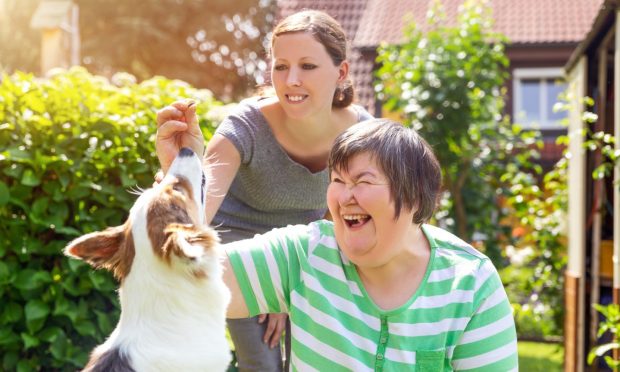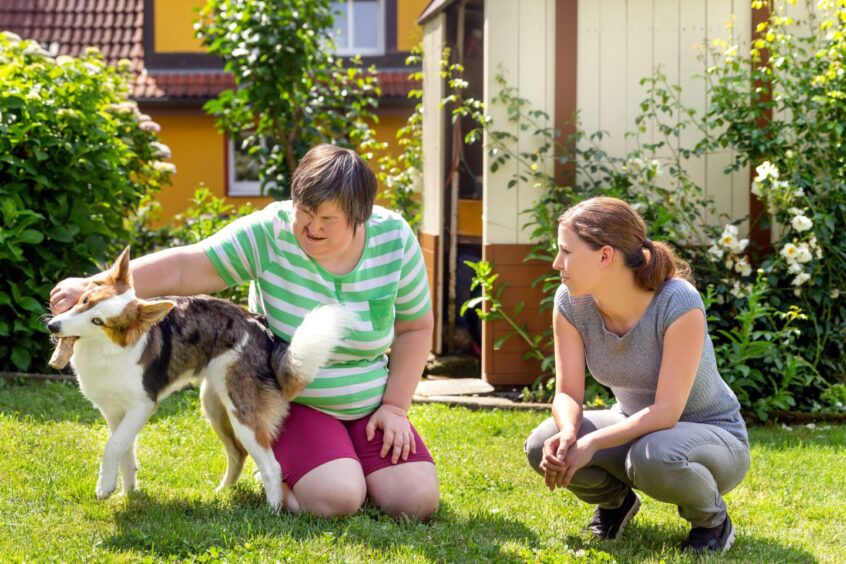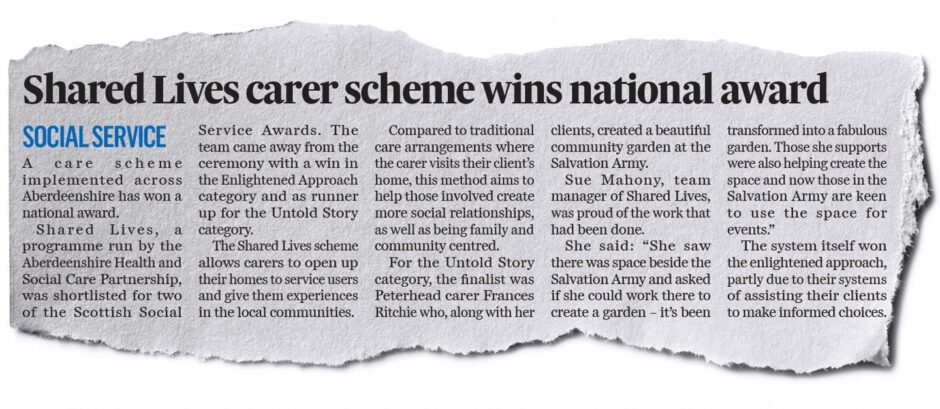Aberdeenshire families have been left struggling to explain to loved ones that they will soon be unable to visit carers they have “known for years” after a shock cut was voted through.
The region’s Integration Joint Board (IJB) which oversees health and social care services across the north-east, recently agreed to cease the Shared Lives service.
Board members made the decision while setting its budget for the year ahead.
Cutting it will save £108,000 over the next year.
But the decision has been met with anger from families across Aberdeenshire, who hail it as a “lifeline” for those who rely on it.
What is the Shared Lives Service?
Shared Lives is a unique social care service, where people who need support can visit or even move into an approved carer’s home.
The scheme was aimed at providing more independence for adults with additional support needs.
It also allowed service users to take part in placements ranging from a few hours a day to short overnight breaks.
A total of 150 Shared Lives Schemes are currently in operation across the UK, overseen by the membership organisation, Shared Lives Plus.
Most of the programmes are operated by local councils, offering support to those with learning disabilities, dementia, mental health issues and even young people leaving children’s services.
The Aberdeenshire scheme even won a Scottish Social Service Award back in 2019.
Families ‘surprised’ care service was axed
An anonymous relative expressed their disappointment over the move as they have a family member who currently benefits from the Shared Lives service.
“All we’ve been told as clients is that it’s stopping, there is no date,” they said.
“It’s very difficult when you’re dealing with somebody that has learning difficulties, to try and get them to understand that it is stopping but you don’t know when.
“It must be terrible for those that are not able to understand why they can’t go to these carers that have been in their lives for a number of years.”
As well as spending one-on-one time with their carers, service users were able to take part in various events such as barbecues and group meet-ups.
“It’s just so devastating because there’s more to it than just going to separate carers,” the family member said.
“There’s a lot of social events that will stop because of these cuts as well, there’s a whole social aspect to it.”
The concerned relative went on to say they were “really surprised” that the IJB cut the service, adding: “It’s such an important service, it’s a lifeline for a lot of people.”
Aberdeenshire care service hailed as a ‘lifeline’ for many
Shared Lives continued successfully throughout the pandemic despite strict restrictions not allowing people to meet up in person.
Our anonymous source told us their relative managed to take part in virtual meetings to ensure they didn’t miss out on their usual routine.
They explained: “Without Shared Lives, I don’t know where we would have been.
“We managed to put them on Microsoft Teams and they did word searches together, they did puzzles, beetle drives and all sorts of things.
“During Covid, I was amazed at what they could actually do.”
Our source is hopeful that informal meet-ups could still take place.
‘It’s a great loss for Scotland’
Janine Howie, Partnership Manager at Aberdeenshire Health and Social Care Partnership said that alternative help would be found for affected users.
She explained: “The Shared Lives Scheme is accessed by a very small number of people.
“Each of those individuals will be supported by their social work practitioner to identify and then access alternative care and support, prior to the ceasing of the service.”
Meanwhile, a spokeswoman from Shared Lives Plus said she was “disappointed” to hear of the decision to close Aberdeenshire’s award winning scheme.
“We are especially sad and concerned for the people supported by Shared Lives carers, and our members who we support – the carers themselves and scheme workers,” she stated.
“They contributed to a well-loved community-based service which supported adults with a learning disability.
“We’ve seen its transformative power across the UK, and in Aberdeenshire the scheme was noted for its social creativity, connecting disabled people in rural areas.
“It is a great loss for Scotland, where other areas of the UK are investing and growing in this innovative, truly social, service.”





Conversation